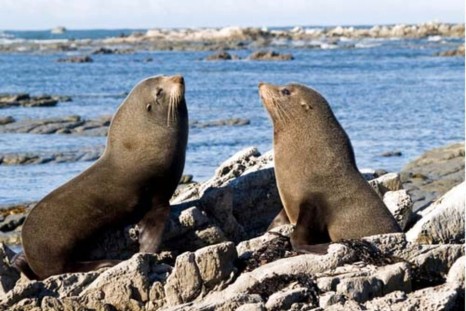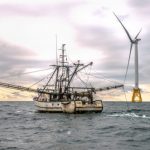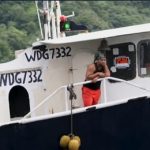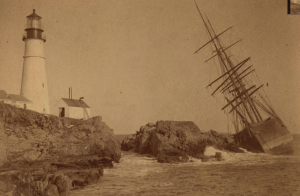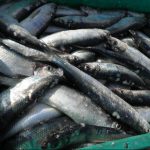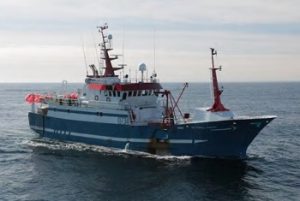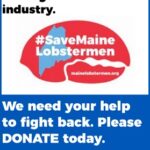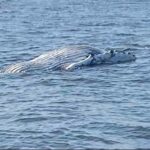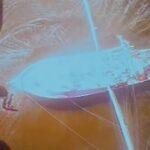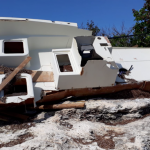Tag Archives: commercial fishing industry
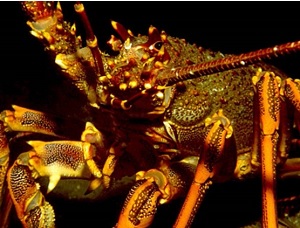
New Zealand rock lobster industry back in action with exports to China
The New Zealand lobster industry was among the first and hardest hit by Covid-19, with the export of live lobsters from New Zealand stopping in late January when China closed its restaurants and freight to the country was restricted. However, Te Anau-based Fiordland Lobster Company, which exports about 40 percent of New Zealand lobster to China, has started up again this week and its product will begin arriving in Shanghai this weekend. Lobster Exporters of New Zealand chairman Andrew Harvey confirmed lobster exports into China had resumed after “stopping dead” in late January. >click to read< 10:21
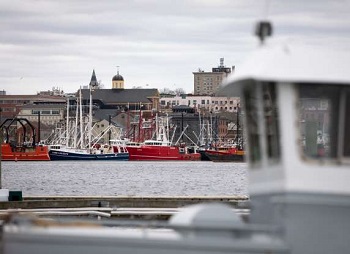
Commercial fishing industry in free fall as restaurants close, consumers hunker down and vessels tie up
The novel coronavirus pandemic has destroyed demand for seafood across a complicated U.S. supply chain, from luxury items such as lobster and crab, generally consumed at restaurants, to grocery staples sourced from the world’s fish farms. Now, with restaurants closed, many of the nation’s fisheries — across geography, species, gear types and management — have reported sales slumps as high as 95 percent. Boats from Honolulu to Buzzards Bay, Mass., are tied up dockside, with fisheries in the Atlantic, the Pacific, the Gulf of Mexico and Alaska affected, throwing thousands of fishermen out of work and devastating coastal communities. >click to read< 16:52
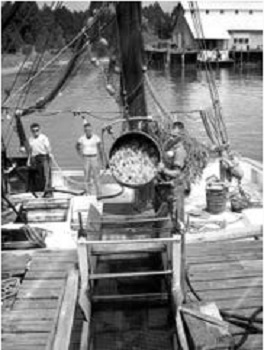
What happened to Pensacola’s commercial fishing industry?
This industry began when it became possible to put in use a series of key elements which together made such a traffic practical and profitable. The “elements” began, of course, with the fish themselves, some of which had been a part of the economic backbone of the community from the beginning. The open sea was home to the fish, and while some of the works had to be performed some distance from land, netting and icing all were practical for the proper vessels. >click to read< 13:08
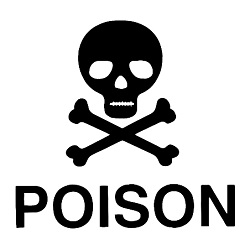
Doherty: Pharmaceuticals are poisoning NJ’s water supply, putting families at risk. We must act now.
In response to reports demonstrating that the water supply is awash with pharmaceutical pollutants, Senator Michael Doherty (R-Warren, Hunterdon, Somerset) is renewing his call for action on legislation,,, The United States EPA, in a conjunction with Riverkeeper and Cornell University, have confirmed that the Hudson River is heavily-polluted by commonly-prescribed pharmaceuticals such as anti-depressants, blood pressure, and cholesterol medications.“If we don’t act now, generations of children could suffer from serious health problems, all because they drank contaminated water. Our commercial fishing industry could also collapse, delivering a huge blow to the economy. By refusing to address pharmaceutical pollution now, we are literally putting New Jersey’s future in jeopardy.” S-1653, would establish the “New Jersey Water Supply and Pharmaceutical Product Study Commission. >click to read<18:22
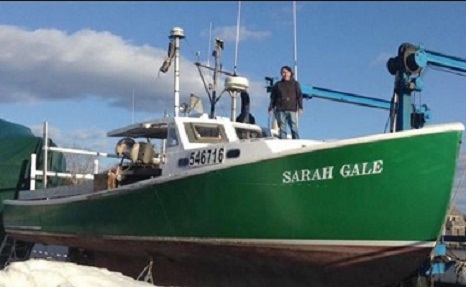
Please support our local commercial fishermen
If you don’t think commercial fishermen are an endangered species – think again. I have been very vocal over the years about my feelings on the commercial fishing industry being in jeopardy, and highlighting the importance of just what an integral part the industry plays in not only the economy, but the infrastructure as a whole, not only in our town and coastal towns across America. As someone with deep ties to our community and the fishing community in particular, I am in a unique position working as a mate on a commercial fishing vessel, and being a journalist. I see so much firsthand that I hope the general public will take into account when I write about it. So here I go again, with more food for thought on an issue that is near and dear to my heart. Thank you for reading, Shelley Wigglesworth >click to read<16:43
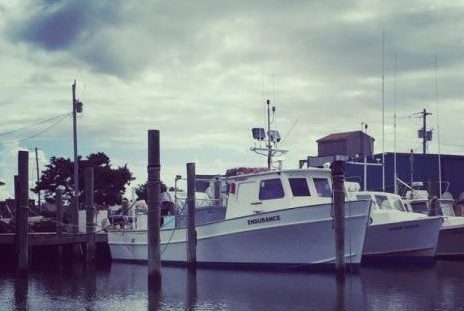
Blended Waters: Seeing is believing – Life teaches us…if we let it
Almost everyone who knows the commercial fishing industry and what’s really involved in it would likely confer with what I share with you in Blended Waters. Wives, or girlfriends who try to keep the bills paid when the ocean’s as rough as a cobb or when the nor’easter blows relentlessly for days on end know that the daily forecast can make or break you so, when you’re the primary income producer in a family and you fish, you fish hard. You fish like you mean it otherwise, cut the engine and leave your keys on the washboard. >click to read< by Marsha Brown14:38
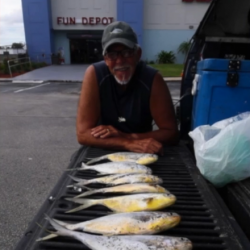
Red tide hurting commercial fishing industry
The red tide has decimated the commercial fishing industry off the coast in southern Florida, bringing it to a halt for those who fish the surf. Rich Vidulich’s sanctuary has turned into a toxic, deserted wasteland, choking out life as he knows it. “It’s 100% deterrent. You don’t catch pompano in this,” he said. It’s a depressant. It really is. It famishes you mentally.” Catching pompano is his identity. Video, >click to read<12:05

Top Tax Tips for those in the Commercial Fishing Industry
It’s never too late to educate yourself and catch up with the tax (and accounting) requirements in certain industries, such as commercial fishing. The following article discusses some general principles and tax tips for clients or prospects in the commercial fishing industry. Self-employed status: A fisherman is considered self-employed (and not an employee) and required to pay SE tax if he/she meets the following conditions: Receives a share of the catch or proceeds from the catch, The share depends on the amount of the catch, Receives a share from a boat with an operating crew of normally fewer than 10 individuals, Generally, does not receive money from work other than a share of catch or proceeds, continues, >click to read<16:59
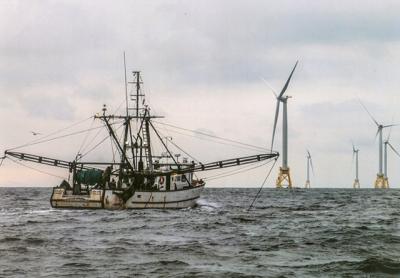
First U.S. Offshore Wind Developer Acts on Fishing Gear
U.S. offshore wind developer Deepwater Wind has adopted a first-of-its-kind procedure designed to prevent impacts to commercial fishing gear from its activities. Deepwater Wind’s Block Island Wind Farm is America’s first offshore wind farm, and the company is currently in active development on utility-scale wind farms to serve Rhode Island, Connecticut, New York, New Jersey and Maryland. The procedure was developed in close coordination with the commercial fishing industry and is based off extensive feedback from fishermen in ports up and down the Atlantic coast. Deepwater Wind believes that keeping fishermen informed is the key to preventing damage to fishing gear. >click to read<18:19
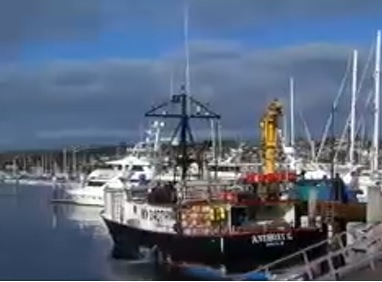
20K-Pound Fresh Fish Catch Helps San Diego Maritime Industry
Thousands of pounds of fish were offloaded Thursday in Point Loma, an occurrence that happens a few times a month in San Diego but is part of an evolving maritime industry. The Port of San Diego is highlighting the commercial fishing industry for “Maritime Month.” Many of the fishermen who work in San Diego have been a part of the local fishing industry for generations and spend weeks at a time at sea. On Thursday, four of those fishermen aboard the boat “Anthony G” used forklifts to unload about 20-thousand pounds of swordfish, tuna, manchong and other fresh catches at Driscoll’s Wharf in Point Loma. Video, >click to read<16:47
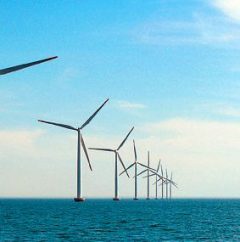
SMAST meeting brings fishing, offshore wind in the same room
Offshore wind developers spent the majority of a 3-hour meeting Monday attempting to win over the local commercial fishing industry. For much of he meeting, the fishermen in attendance rolled their eyes, scoffed at various PowerPoint slides and even went as far as to say offshore wind is unwanted. “Nobody wanted this,” one fisherman out of Point Judith said. “Nobody wanted problems. We are assured there would be none. And here we are.” Twenty members of the Fisheries Working Group on Offshore Wind Energy sat around a table at SMAST East hoping to solve various issues between the two ocean-based industries. >click to read< 18:09 
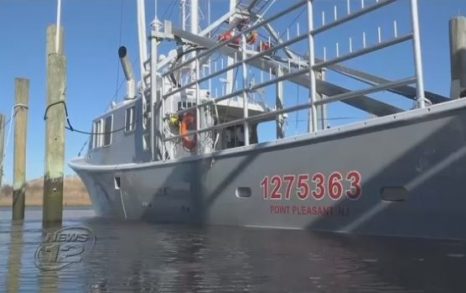
Young captain bets on NJ’s commercial fishing industry with new boat
As the sun rose on the docks in Point Pleasant Thursday morning, a rare sight for many New Jersey longtime fisherman came into view: a new commercial fishing boat. “This is the first time I’ve ever been in a brand new boat, commercial, anyway. It’s a beautiful thing,” fisherman Charlie Burke said. The captain of the 54-foot, $2 million boat is Pat Fehily, 28, who drove it overnight on its maiden voyage from Maine, where it was built over 19 months. >click here to read, video<12:26
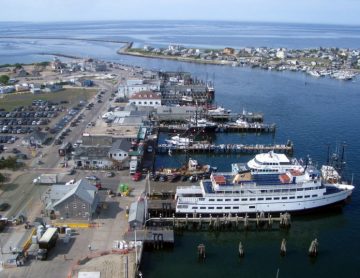
DEM gets $1.6M grant for Port of Galilee infrastructure improvements
The R.I. Department of Environmental Management has received a $1.6 million grant from the U.S. Department of Commerce’s Economic Development Administration to make critical port infrastructure improvements needed to support the region’s commercial fishing industry, U.S. Secretary of Commerce Wilbur Ross announced Monday.,,, “President Trump has been clear about the urgent need to upgrade American infrastructure from coast to coast,” Ross said in a statement. “The completion of this project will help drive new opportunities to the local commercial fishing industry in the Port of Galilee.” click here to read the story 14:57
Hurricane Irma cuts Florida lobster harvest by half
 A fresh catch of spiny lobster arrives dockside. But for marina owner Gary Graves, this delivery is too little, too late. “Basically, lobster fishing is pretty much over for us this year,”said Graves, who is vice president of Keys Fisheries wholesaler. Graves says Hurricane Irma dealt a severe blow when it hit Florida in September. Leaving a trail of wreckage on land, the storm also came just a month into lobster harvesting season. “We’re going to probably end up maybe 50 percent of a normal season the way it looks right now,” he said. click here to read the story 11:19
A fresh catch of spiny lobster arrives dockside. But for marina owner Gary Graves, this delivery is too little, too late. “Basically, lobster fishing is pretty much over for us this year,”said Graves, who is vice president of Keys Fisheries wholesaler. Graves says Hurricane Irma dealt a severe blow when it hit Florida in September. Leaving a trail of wreckage on land, the storm also came just a month into lobster harvesting season. “We’re going to probably end up maybe 50 percent of a normal season the way it looks right now,” he said. click here to read the story 11:19
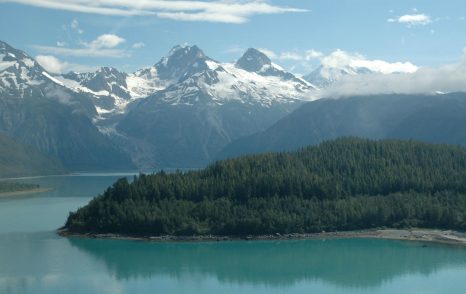
Where Is America’s Next War? Alaska. And the enemy is not who you’d expect.
It’s war in the Gulf and the US Navy is on hand to protect us. No, not that Gulf! I’m talking about the Gulf of Alaska and it’s actually mock war — if, that is, you don’t happen to be a fin whale or a wild salmon. This May, the Navy will again sail its warships into the Gulf of Alaska. There, they will engage in military maneuvers and possibly drop bombs, launch torpedoes and missiles, and engage in activities that stand a significant chance of poisoning those once-pristine waters, while it prepares for future battles elsewhere on the planet. Think of it as a war against wildlife, an assault on the environment and local coastal communities. click here to continue reading the article 11:57
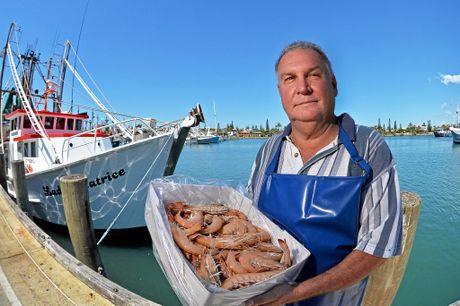
Fishing industry rattled as white spot disease breaks barriers
It was the outbreak they were expecting, but hoping would never come to pass. Concern and uncertainty seem to the prevailing moods amongst the Queensland commercial fishing industry, reeling from this week’s news that white spot disease had broken it’s containment in the Logan River and been detected in Moreton Bay. There’s also considerable frustration amongst members of the Queensland Seafood Industry Association (QSIA), many of whom predicted the outbreak was a matter of ‘when’, not ‘if’. “It definitely hasn’t been a good week for us,” says QSIA’s CEO Eric Perez. “There’s certainly a lot of concern about the impact this will have on the industry here, as well as the knock-on effects this will have on the wider community.” There appears to be no immediate threat to fisheries in the Gympie and Cooloola Cove regions, but tests are ongoing just to determine how far the disease has spread. continue reading the story here 11:16
Waldoboro Selectman Emphasizes Importance of Jobs, Commercial Fishing Industry in Run for House
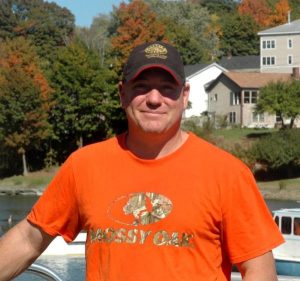 Waldoboro selectman is hoping to parlay his time at the municipal level of government into a role in the Maine State Legislature. Abden Simmons, R-Waldoboro, is looking to represent House District 91, which includes Friendship, part of Union, and Washington in addition to Waldoboro. Simmons, who was elected to the Waldoboro Board of Selectmen in June 2015, said he believes the Legislature needs to create favorable conditions for businesses, which, in turn, will lead to job creation. Another big part of Simmons’ focus is the commercial fishing industry. He believes the commercial fishing industry is an integral part of the state’s economy that deserves to be defended in the Legislature. “I want to make sure commercial fishing doesn’t get interfered with any more than it already is,” Simmons said. Simmons is the executive director of the Maine Elver Fisherman Association, and has spent time on the state’s shellfish advisory council, in addition to taking part in the governor’s task force on the invasive European green crab. Read the story here 16:36
Waldoboro selectman is hoping to parlay his time at the municipal level of government into a role in the Maine State Legislature. Abden Simmons, R-Waldoboro, is looking to represent House District 91, which includes Friendship, part of Union, and Washington in addition to Waldoboro. Simmons, who was elected to the Waldoboro Board of Selectmen in June 2015, said he believes the Legislature needs to create favorable conditions for businesses, which, in turn, will lead to job creation. Another big part of Simmons’ focus is the commercial fishing industry. He believes the commercial fishing industry is an integral part of the state’s economy that deserves to be defended in the Legislature. “I want to make sure commercial fishing doesn’t get interfered with any more than it already is,” Simmons said. Simmons is the executive director of the Maine Elver Fisherman Association, and has spent time on the state’s shellfish advisory council, in addition to taking part in the governor’s task force on the invasive European green crab. Read the story here 16:36
Tips on how to get a job in the Alaska fishing business
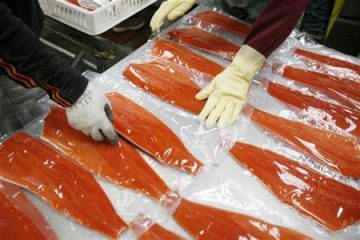 Work in the Alaska commercial fishing industry is a great way to save up a lot of money in a short amount of time. After the fishing season many employees use the time and money that they now have for college, to buy property, to start a new business, or to travel the world. The industry employs over 65,000 people every year, so there is plenty of room for newcomers to get a job. Work hours generally range from 12 to 16 hours a day, up to seven days a week. Typically processors make $750 to $1,500 a week. Fishermen earn around $1,000 to $2,500 a week (and sometimes more!). Besides the pay, many employers in the industry also offer free room and board and free round-trip airfare from the point of hire (usually Seattle, WA) to Alaska. Processing jobs are the easiest to get. Read the rest here 14:35
Work in the Alaska commercial fishing industry is a great way to save up a lot of money in a short amount of time. After the fishing season many employees use the time and money that they now have for college, to buy property, to start a new business, or to travel the world. The industry employs over 65,000 people every year, so there is plenty of room for newcomers to get a job. Work hours generally range from 12 to 16 hours a day, up to seven days a week. Typically processors make $750 to $1,500 a week. Fishermen earn around $1,000 to $2,500 a week (and sometimes more!). Besides the pay, many employers in the industry also offer free room and board and free round-trip airfare from the point of hire (usually Seattle, WA) to Alaska. Processing jobs are the easiest to get. Read the rest here 14:35
Catch Shares: Commercial fishers on Far South Coast want action on restructure
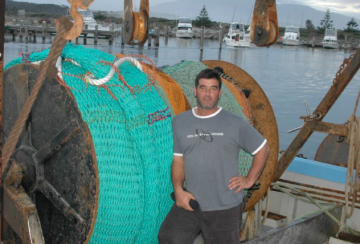 The restructure of the NSW commercial fishing industry is reaching an important milestone with companies and individuals having until tomorrow to decide on whether they take a $20,000 buy-out to exit the industry. NSW Labor called on the State Primary Industries Minister to suspend the restructure process until more information is on the table to assist fishers in making the right decision for themselves, their families, and for the sustainability of the industry in general. But Bermagui Fishermen’s Cooperative managing director Rocky Lagana was of the opposite view and said the three-year restructure process needed to reach a conclusion to afford those who wanted to remain some certainty. Shadow Minister for Primary Industries Mick Veitch however called it policy-on-the-run and said a hastily cobbled together Ministerial press release the day after Labor’s call for a suspension made a few concessions without addressing the real concerns – which are the need for more information, more time and the need to hit the pause button. Read the story here 10:26
The restructure of the NSW commercial fishing industry is reaching an important milestone with companies and individuals having until tomorrow to decide on whether they take a $20,000 buy-out to exit the industry. NSW Labor called on the State Primary Industries Minister to suspend the restructure process until more information is on the table to assist fishers in making the right decision for themselves, their families, and for the sustainability of the industry in general. But Bermagui Fishermen’s Cooperative managing director Rocky Lagana was of the opposite view and said the three-year restructure process needed to reach a conclusion to afford those who wanted to remain some certainty. Shadow Minister for Primary Industries Mick Veitch however called it policy-on-the-run and said a hastily cobbled together Ministerial press release the day after Labor’s call for a suspension made a few concessions without addressing the real concerns – which are the need for more information, more time and the need to hit the pause button. Read the story here 10:26
Fishermen-heavy crowd shows frustration with catch rules, monitoring costs at RI forum
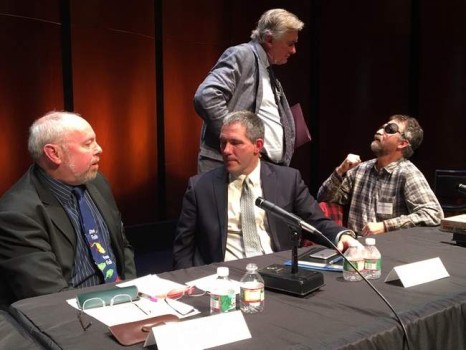 A forum on the sustainability of the commercial fishing industry revealed significant frustration in a fisherman-heavy crowd and a few suggestions for future changes, but little tangible optimism, Thursday night at Rhode Island College. “Right now, there are more fish in the Atlantic Ocean than there was 20 or 30 years ago — we are just not allowed to catch them anymore,” said fisherman Mark Phillips, a New York native who has fished out of New Bedford for several decades. Phillips and New Hampshire fisherman David Goethel, who sued the National Oceanic and Atmospheric Administration (NOAA) in December over catch monitoring costs, were the two fishermen on the forum’s six-person panel. Read the story here 05:53
A forum on the sustainability of the commercial fishing industry revealed significant frustration in a fisherman-heavy crowd and a few suggestions for future changes, but little tangible optimism, Thursday night at Rhode Island College. “Right now, there are more fish in the Atlantic Ocean than there was 20 or 30 years ago — we are just not allowed to catch them anymore,” said fisherman Mark Phillips, a New York native who has fished out of New Bedford for several decades. Phillips and New Hampshire fisherman David Goethel, who sued the National Oceanic and Atmospheric Administration (NOAA) in December over catch monitoring costs, were the two fishermen on the forum’s six-person panel. Read the story here 05:53
New York State Department of Environmental Conservation Dealings Criticized
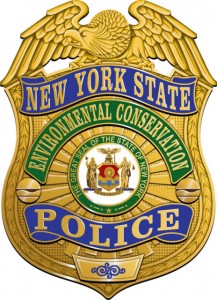 A $1,000 check issued last month to Stuart Vorpahl, an East Hampton bayman, from the New York State Department of Environmental Conservation as reimbursement for the 1998 seizure of fluke and lobsters from his boat was closely followed by a report from the state’s inspector general’s office critical of several of the D.E.C.’s enforcement practices as they relate to the commercial fishing industry. But the report itself is also coming under fire, both for its substance and for the lengthy delay in its issuance. Read the rest here 10:08
A $1,000 check issued last month to Stuart Vorpahl, an East Hampton bayman, from the New York State Department of Environmental Conservation as reimbursement for the 1998 seizure of fluke and lobsters from his boat was closely followed by a report from the state’s inspector general’s office critical of several of the D.E.C.’s enforcement practices as they relate to the commercial fishing industry. But the report itself is also coming under fire, both for its substance and for the lengthy delay in its issuance. Read the rest here 10:08
Proposal to Protect Deepwater Habitat and Cashes Ledge, Divides Room
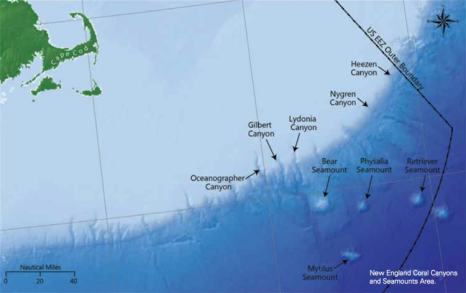 The commercial fishing industry noted that the area under consideration isn’t even entirely clear. The meeting’s agenda listed three canyons — Oceanographer, Gilbert and Lydonia — and the four seamounts south of them, but NOAA officials admitted the area in consideration could change. In fact, the two other canyons in the area — Nygren and Heezen — were mentioned, and plenty of speakers, both for and against monument designation, brought up Cashes Ledge, north of the area that was the meeting’s planned topic of discussion. Read the rest here 18:30
The commercial fishing industry noted that the area under consideration isn’t even entirely clear. The meeting’s agenda listed three canyons — Oceanographer, Gilbert and Lydonia — and the four seamounts south of them, but NOAA officials admitted the area in consideration could change. In fact, the two other canyons in the area — Nygren and Heezen — were mentioned, and plenty of speakers, both for and against monument designation, brought up Cashes Ledge, north of the area that was the meeting’s planned topic of discussion. Read the rest here 18:30
Commercial fishing industry reeling from mental health crisis
 Led by Deakin University maritime anthropologist, Dr Tanya King, the report ‘A Different Kettle of Fish: Mental health strategies for Australian fishers and farmers’ reveals a community under stress and struggling under the weight of government policy around fishing licences. “This would allow the specific issues facing the fishing industry to be addressed, rather than assuming that policies good for farmers will necessarily work for fishers. “It’s not just people’s livelihoods, or even consumer access to fresh, sustainable local seafood – people’s lives are on the line,” she said. Read the rest here 08:16
Led by Deakin University maritime anthropologist, Dr Tanya King, the report ‘A Different Kettle of Fish: Mental health strategies for Australian fishers and farmers’ reveals a community under stress and struggling under the weight of government policy around fishing licences. “This would allow the specific issues facing the fishing industry to be addressed, rather than assuming that policies good for farmers will necessarily work for fishers. “It’s not just people’s livelihoods, or even consumer access to fresh, sustainable local seafood – people’s lives are on the line,” she said. Read the rest here 08:16
Extremism and Zealotry – A threat to the Commercial Fishing Industry
 WA’s most senior fisheries scientist has lamented the growing disconnect between consumers and the fishing industry, saying demands that it have no effect on the environment are becoming unrealistic. Rick Fletcher, executive director of research at the Fisheries Department, said sensibilities increasingly dictated the way Australian fisheries were managed and something would “eventually have to give”. Citing Australia’s zero-tolerance to the incidental catch of species such as dolphins — some of which are protected but not endangered,,, Read the rest here 15:15
WA’s most senior fisheries scientist has lamented the growing disconnect between consumers and the fishing industry, saying demands that it have no effect on the environment are becoming unrealistic. Rick Fletcher, executive director of research at the Fisheries Department, said sensibilities increasingly dictated the way Australian fisheries were managed and something would “eventually have to give”. Citing Australia’s zero-tolerance to the incidental catch of species such as dolphins — some of which are protected but not endangered,,, Read the rest here 15:15






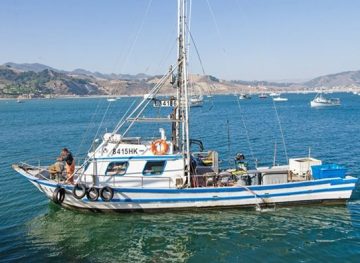
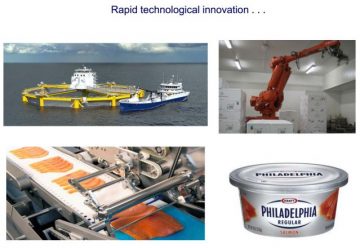
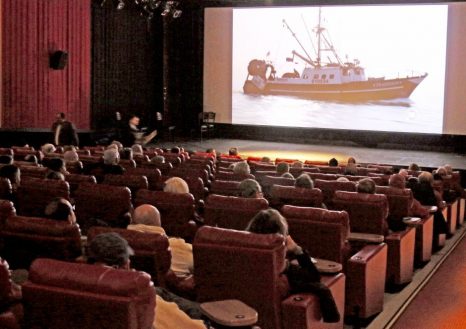


 It took something terrible to turn Santa Barbara business advocates onto the idea of doing some good for the local commercial fishing industry. That awful thing — the May 2015 oil pipeline leak near Refugio State Beach — scared customers of all sorts away from seafood caught locally, crippling some fishing operations long after officials said the fare was safe to eat. Around that time, the Santa Barbara Chamber of Commerce realized it could do a better job serving fishermen by coming up with a collective campaign to brand local catch sold outside the area.
It took something terrible to turn Santa Barbara business advocates onto the idea of doing some good for the local commercial fishing industry. That awful thing — the May 2015 oil pipeline leak near Refugio State Beach — scared customers of all sorts away from seafood caught locally, crippling some fishing operations long after officials said the fare was safe to eat. Around that time, the Santa Barbara Chamber of Commerce realized it could do a better job serving fishermen by coming up with a collective campaign to brand local catch sold outside the area. 